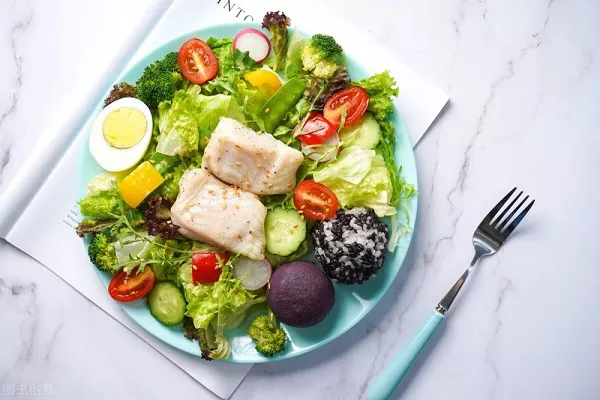In today’s fast-paced world, finding time for regular exercise can be a challenge. However, the good news is that weight loss doesn’t solely depend on hitting the gym. What you eat plays a crucial role in achieving your weight loss goals. In this comprehensive guide, we’ll explore the key principles of a diet focused on losing weight without exercise, providing you with practical tips and nutritional insights.
Embrace a Balanced Diet:
Maintaining a balanced diet is the cornerstone of any effective weight loss plan that doesn’t rely on exercise. Opt for a combination of lean proteins, whole grains, fruits, and vegetables. These foods not only provide essential nutrients but also help control your calorie intake.
1.1 Lean Proteins:
Incorporate lean protein sources such as chicken, turkey, fish, beans, and tofu into your meals. These foods promote a feeling of fullness, reducing the likelihood of overeating.
1.2 Whole Grains:
Choose whole grains like quinoa, brown rice, and oats over refined grains. Whole grains offer sustained energy, keeping you satisfied for longer periods and preventing unnecessary snacking.
1.3 Fruits and Vegetables:
Load up on colorful fruits and vegetables rich in vitamins, minerals, and fiber. These foods are low in calories and high in nutrients, making them ideal for weight loss without exercise.
Mindful Eating Practices:
In the hustle and bustle of daily life, we often consume meals hastily without paying attention to our bodies. Mindful eating involves being present during meals and savoring each bite, which can positively impact weight loss.
2.1 Slow Down:
Take your time while eating, allowing your body to signal when it’s full. Eating slowly can prevent overeating and promote better digestion.
2.2 Portion Control:
Be mindful of portion sizes. Use smaller plates to create the illusion of a full plate, and listen to your body’s hunger and fullness cues to avoid unnecessary calorie consumption.
2.3 Eliminate Distractions:
Avoid distractions such as TV or smartphones during meals. Focus on the flavors and textures of your food, promoting a more satisfying eating experience.
Choose Healthy Fats:
Not all fats are created equal. Including healthy fats in your diet can support weight loss and overall health.
3.1 Avocado:
Avocados are rich in monounsaturated fats, which can help control appetite and reduce belly fat. Add slices to salads or spread avocado on whole-grain toast for a nutritious snack.
3.2 Nuts and Seeds:
Incorporate nuts and seeds like almonds, chia seeds, and flaxseeds into your diet. These are packed with healthy fats, fiber, and protein, providing a satisfying and nutritious snack option.
3.3 Olive Oil:
Opt for olive oil as your primary cooking oil. It contains heart-healthy monounsaturated fats and can be used in salads, cooking, or drizzled over vegetables.
Hydration is Key:
Staying hydrated is crucial for overall health and can also aid in weight loss.
4.1 Drink Water Before Meals:
Consuming a glass of water before meals can help you feel fuller and reduce the likelihood of overeating. Sometimes, the body can confuse thirst with hunger.
4.2 Choose Water Over Sugary Drinks:
Cut down on sugary beverages and opt for water as your main hydration source. Sugary drinks can contribute to unnecessary calorie intake without providing nutritional value.
4.3 Herbal Teas:
Incorporate herbal teas like green tea or peppermint tea into your routine. These can boost metabolism and provide additional health benefits.
Plan and Prepare Meals Ahead:
Planning and preparing meals in advance can prevent impulsive, unhealthy food choices.
5.1 Meal Prepping:
Set aside time each week to plan and prepare your meals. Having healthy, portion-controlled options readily available reduces the temptation to indulge in less nutritious choices.
5.2 Snack Smartly:
Prepare nutritious snacks, such as cut-up veggies, fruit, or a handful of nuts, to curb cravings between meals. Avoiding processed snacks can contribute to effective weight management.
Conclusion:
In conclusion, achieving weight loss without exercise is entirely feasible by making mindful food choices and adopting a balanced, nutritious diet. By embracing these dietary principles, incorporating a variety of nutrient-dense foods, and practicing mindful eating, you can create a sustainable and effective weight loss plan. Remember, it’s not just about what you exclude from your diet but also about nourishing your body with the right nutrients for long-term health and wellness.
Related Links:
What to Eat Late Night for Weight Loss
What should i eat to lose weight in 30 days
What Can I Eat to Burn Fat and Accelerate Your Weight Loss


